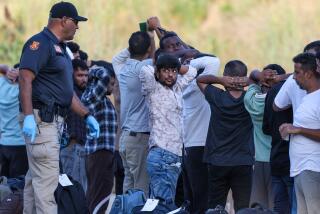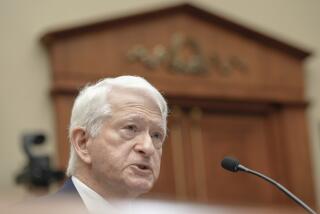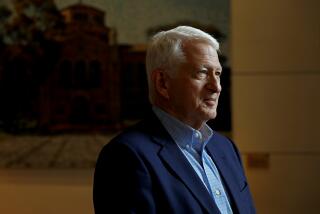Targeting Muslims
Next month, Rep. Peter T. King (R-N.Y.), the chairman of the House Homeland Security Committee, plans to hold hearings on the radicalization of American Muslims. Unlike some of his critics, we don’t think King is motivated by animus toward Islam. Nor do we believe that the hearings’ subject matter should be broadened, for appearances’ sake, to include other sorts of extremism. If the radicalization of American Muslims is, as King suggests, a significant and growing threat to the nation’s security, then hearings should by all means be held.
The problem is that King hasn’t identified such a threat, and certainly not at a level that would justify singling out one religion to be targeted for special scrutiny.
Take the congressman’s comments about Islamic clerics. He says that federal and state law enforcement officials have told him they received “little — or in most cases no — cooperation from Muslim leaders and imams.” He also says that he knows of “imams instructing members of their mosques not to cooperate with law enforcement officials investigating the recruiting of young men in their mosques as suicide bombers.” But King has offered few details; his evidence is anecdotal and sketchy. And it is contradicted by others, including Los Angeles County Sheriff Lee Baca, who said this week that Muslims in the county have been pivotal in helping to fight terrorism.
Obviously, some American Muslims have been converted to radical Islam and have engaged in terrorism. The alleged Ft. Hood gunman — an American-born U.S. Army major of Palestinian descent — is often held up as an example. It would be negligent for the FBI not to investigate such cases, and in some situations that may involve interviewing Muslim clergy and worshippers.
But the premise of King’s hearings has yet to be established. And while ordinarily no great harm is done when a hearing is based on inadequate evidence, the proceedings to be chaired by King are different. They appear to attribute danger and disloyalty to one particular religious group — a group that is, not incidentally, relatively unpopular at the moment.
It is especially worrisome that the committee might adopt an overly broad definition of “radicalization”; committee members should remember that many “radical” notions are protected under the 1st Amendment. Thankfully, some of the more vehement critics of Islam are not on the witness list, and Rep. Keith Ellison (D-Minn.), a Muslim who challenges King’s thesis, is. So the hearings may not be as incendiary as some fear.
Even so, an investigation of members of a single religion makes us uneasy. As the controversy over a proposed mosque and community center in Lower Manhattan demonstrated, anti-Islamic feeling in this country is real and widespread. King’s hearings run the risk of exacerbating that.
More to Read
A cure for the common opinion
Get thought-provoking perspectives with our weekly newsletter.
You may occasionally receive promotional content from the Los Angeles Times.










